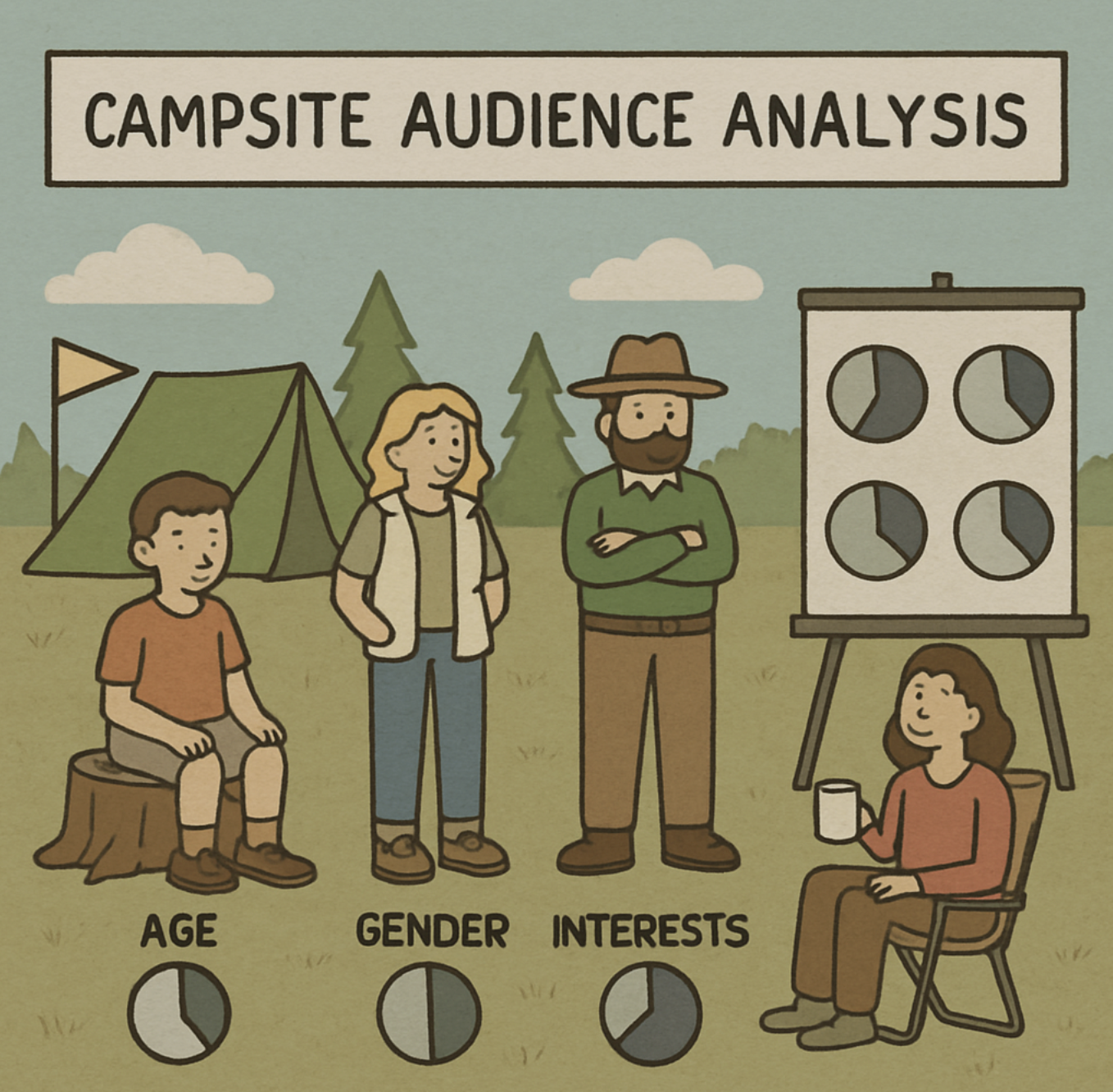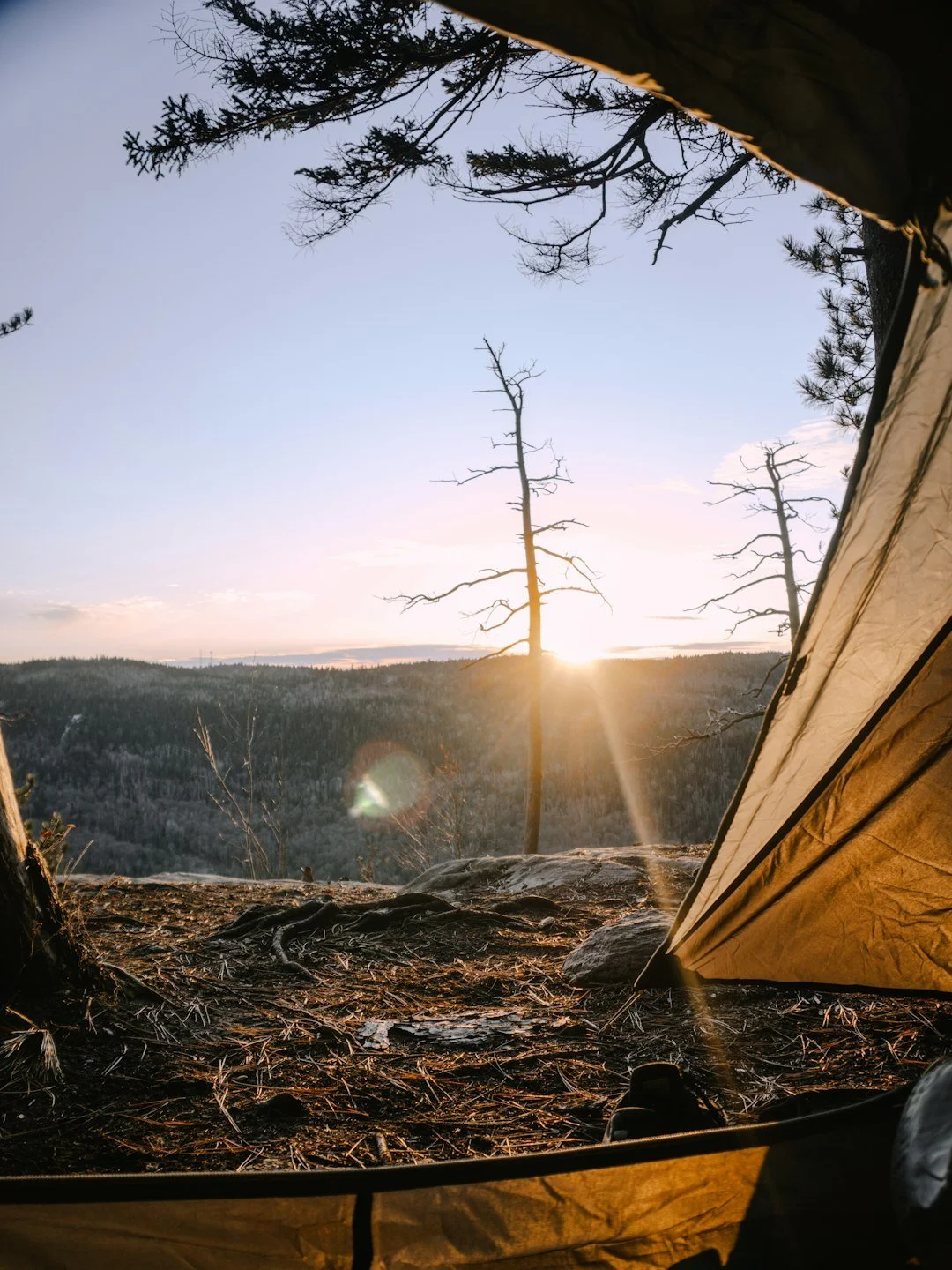Effective Strategies for Campground Marketing Success
Before diving into specific strategies, it's essential to understand your audience. Are you catering to families, solo travelers, or groups of friends? Do your visitors prefer tents, RVs, or cabins? Understanding these preferences will help tailor your marketing efforts to meet their needs effectively, ensuring your messaging resonates and your services align with what your target customers value most. This foundational knowledge guides not only promotional tactics but also the design and functionality of your website, helping to create a seamless experience that converts visitors into loyal customers.
Demographics and Preferences
Start by thoroughly analyzing the demographics of your past visitors to gain a clearer picture of who they are. Gather detailed data on important factors such as age, interests, and spending habits. This comprehensive information will empower you to create highly targeted marketing campaigns that truly resonate with your specific audience. Consider going beyond just data collection by conducting surveys or offering incentives for candid feedback, which can help you gain even deeper insights into what your visitors value the most.
In addition to examining basic demographic information, take the time to delve into psychographics to better understand your visitors' lifestyle preferences and motivations. Are your visitors predominantly adventure-seekers eager for excitement, or do they lean more toward peaceful relaxation and tranquility? This knowledge can guide the types of experiences you choose to highlight in your marketing materials. By understanding these subtle but important nuances, you can craft messages that speak directly to the desires and expectations of your campers.
Moreover, keep an eye on evolving trends in camping, such as the growing popularity of glamping and digital detox retreats. Are there particular amenities, features, or unique experiences you can offer that align with these emerging trends? Staying informed about industry developments and shifting camper preferences ensures that your campground remains competitive and can position itself as a leader in catering to new demands within the camping community.
Seasonal Trends
Identify seasonal camping trends—summer draws families, fall attracts solitude seekers. Customize campaigns to showcase unique seasonal experiences. Create a marketing calendar highlighting spring renewal, cozy winter stays, and relevant activities. Use seasonal promotions to boost bookings. Track weather trends to adjust offers, like extending promotions during mild winters, maximizing year-round occupancy.
Understanding Visitor Motivations
Look beyond age and seasons to understand why people go camping. Is it for adventure, rest, or to enjoy nature? Knowing these reasons helps you create messages that truly connect.
Group your audience by what they want. For example, target adventure lovers with info about hiking and kayaking, while people wanting calm might prefer peaceful spots and wellness activities.
Also, tap into the emotional side of camping. Use stories that show the freedom, excitement, or peace camping brings. This emotional link can attract more campers.
Leveraging Online Platforms
In today’s digital age, having a strong online presence is absolutely indispensable for any business. Here’s a clear guide on how to effectively use various online platforms to maximize your campground advertising efforts.
Website Optimization
Your website is often the very first point of contact for potential visitors exploring their options. It is essential to ensure that it is not only visually appealing but also easy to navigate and fully mobile-friendly for users on any device. Be sure to include all essential information prominently, such as detailed descriptions of amenities, easy-to-read site maps, transparent pricing, and straightforward booking options. Incorporating high-quality images alongside genuine testimonials can significantly build trust and encourage more bookings.
Beyond these basics, consider enhancing the overall user experience with interactive features like virtual tours or booking chatbots that can provide potential visitors with an engaging, immersive glimpse into what your campground offers. Additionally, optimize your website's loading speed, as slow websites often frustrate users and deter potential bookings before they even explore your site fully.
Implementing effective SEO strategies is crucial to increase your website's visibility on popular search engines. Use relevant, well-researched keywords thoughtfully throughout your content, including in meta descriptions and alt text for images. This approach will help attract more organic traffic from individuals actively searching for camping options within your area.
Finally, make a habit of regularly updating your website to reflect current events, promotions, and any changes to amenities or policies. Maintaining a dynamic website filled with fresh, up-to-date content encourages visitors to return frequently and stay informed about what’s new and exciting at your campground.
Social Media Engagement
Use social media like Facebook, Instagram, and Pinterest to promote your campsite. Post photos, event updates, and special offers. Ask visitors to tag your location and use hashtags to get more views.
Plan your posts with a content calendar, mixing promotions, visitor photos, and behind-the-scenes content. Reply quickly to comments and messages.
Run contests or challenges, like sharing camping memories for a chance to win a free stay, to increase engagement and build community.
Use analytics to see which posts do well and adjust your content. Be consistent and interact with your audience to grow loyal followers.
Online Reviews and Reputation Management
Online reviews greatly affect your business. Ask happy campers to leave positive reviews on sites like Google, Yelp, and TripAdvisor. Reply quickly to all reviews, handling negative comments calmly and helpfully.
Set up a simple way to request reviews after campers leave, such as a thank-you email inviting them to share their thoughts. Good reviews build trust and attract more visitors.
When you get negative reviews, respond kindly and offer solutions. Showing you care about fixing problems can turn bad experiences into good ones. Many potential guests notice how you handle complaints.
Keep track of your reviews often. Use tools to manage your reputation across different sites. Staying active and positive online helps improve your campground’s image and brings in more bookings.
Offering Unique Experiences
Themed Weekends and Events
Organize themed weekends or special events, such as a stargazing night under clear skies, a nature photography workshop guided by professionals, or a family-friendly scavenger hunt designed to engage all ages. These thoughtfully planned activities not only attract new visitors but also create memorable experiences that encourage guests to return time and again for fresh and exciting opportunities.
Plan a diverse and dynamic calendar of events throughout the year, thoughtfully catering to a wide range of interests and demographics. This could include lively music festivals, rejuvenating wellness retreats, or vibrant cultural celebrations that beautifully highlight and honor local traditions and heritage.
Promote these events well in advance using a variety of effective channels, including your website, social media platforms, email newsletters, and local media outlets. Early and consistent promotion helps generate significant buzz, increases visibility, and encourages guests to make bookings, ensuring strong attendance.
Consider partnering with local experts, professionals, or influencers to lead your workshops or events. Their specialized knowledge, credibility, and dedicated following can attract additional interest, enhance the quality of your offerings, and build trust with your audience. Eco-Friendly Initiatives
Loyalty Programs
Encourage guests to return by offering simple, valuable loyalty programs. Give rewards like discounts on future stays, special event access, or early booking for frequent campers. Use easy-to-understand tiers to motivate more visits and longer stays. Promote your program through emails, social media, and in person at your campground. Regularly check guest feedback and participation to improve the program and build lasting relationships.
Monitoring and Analyzing Your Efforts
To make your marketing successful, regularly check and analyze your results. Use tools like Google Analytics to see website visitors and conversions. Track social media engagement to see how well your campaigns work. Use data to improve your strategies.
Set up a system to monitor key metrics like website bounce rates, social media activity, and occupancy rates. Review these often to spot trends and find ways to improve.
Collect customer feedback through surveys and reviews to understand guest satisfaction and preferences. This helps identify what’s working and what needs change.
Keep up with industry trends and competitors. Compare your performance to others to find growth opportunities.
Create a plan to use data and feedback to keep improving your marketing. Regularly update your strategies to stay effective and aligned with your business goals.
Conclusion
Know your audience, use both online and offline marketing, and create unique experiences to attract more visitors to your campground. Stay consistent and flexible by regularly reviewing and adjusting your strategies based on feedback and results. These simple marketing tips will help you succeed.
If you’d like to discuss a marketing strategy for your RV park, RV resort, or traveling community, click the link below to speak with an expert.










